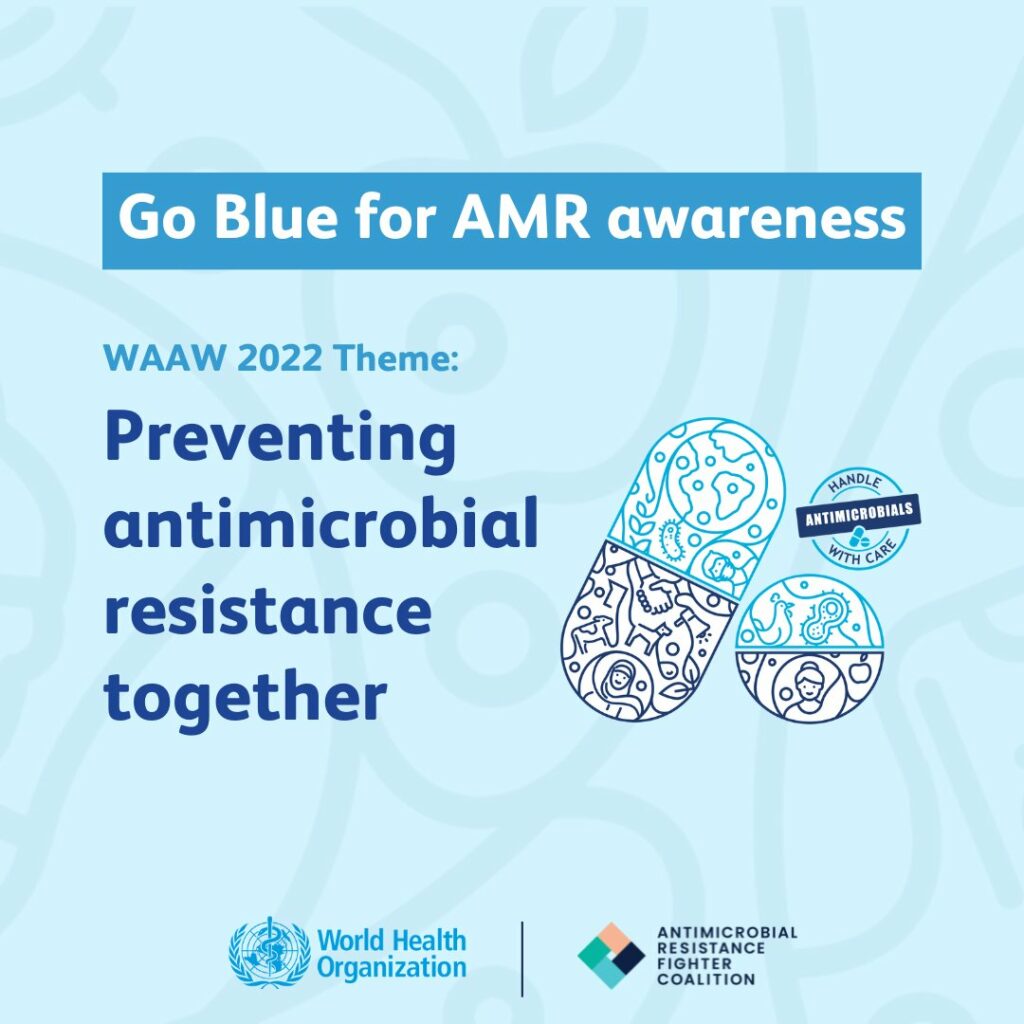Preventing Antimicrobial Resistance Together
WHO theme for WAAW 2023
Today, 18 November, marks the first day of this year's World Antimicrobial Awareness Week, which will run until 24 November. The theme of this year's WAAW is "Preventing AMR Together" - a concept that is vital to the success of the World's fight against the rising incidence of pathogen resistance to antibiotics.
This is a global awareness initiative arising from the Global Action Plan on Antimicrobial Resistance (AMR) adopted globally in 2015. It is an annual campaign from 18 - 24 November, established to raise global awareness and understanding on AMR.
To open our discussion on this global health threat, Professor Mathew Upton of the University of Plymouth, UK, shares his personal experience of AMR, and his research journey into the world of AMR and Natural Product Drug Discovery.
Antimicrobial resistance (AMR) occurs when microorganisms (such as bacteria, viruses, fungi, or parasites) evolve and become resistant to the antimicrobial drugs that were originally effective in treating infections. These antimicrobials include antibiotics, antivirals, antifungals, and antiparasitics. The development of resistance to antimicrobials is a natural process for survival of microorganisms in limiting environments, allowing individuals to survive the stressors of an environment, and resistance mechanisms are acquired through natural selection of genetic mutations that provide the bug with a survival advantage in the presence of antimicrobials. However, overuse and misuse of antimicrobials in medicine and agriculture are rapidly accelerating the frequency of resistant pathogens. The greater proportion of antimicrobials and their derivatives dumped into the environment as a result of this misuse and abuse is hugely problematic. Exposure of microorganisms to sub-optimal levels of antimicrobials entering the environment through waste and runoff promotes the acquisition of AMR mutations. Additionally, in the environment, genetic material can be shared among microbes, which contributes to the development and spread of resistance.
In other words, when microbes develop resistance, the medications intended to kill or inhibit their growth become less effective or entirely ineffective. This can lead to persistent infections, increased severity of illnesses, prolonged recovery periods, and a higher risk of spreading infections to others.
Listed as a top global public health threat by the WHO, globally AMR claimed 1.27 million human lives in 2019 and contributed to 4.95 million deaths in that year. Most concerning, 1 in 5 people who died from AMR were children under 5 years old, often from previously treatable infections. (See: The Institute for Health Metrics and Evaluation (IHME) webpage on AMR for more relevant stats.)
This global threat is a hugely complex and multi-dimensional problem that must be tackled at the human-animal-plant-environment interface, through strong collaborations and cooperation between all sectors of society. As Prof Upton mentions:
"We're not going to be able to deal with the problem just by looking at one particular area." We must consider AMR "...at the level of the whole system to be able to address it properly."
Efforts to combat AMR involve promoting responsible use of antimicrobials, developing new drugs, investing in research and surveillance, and implementing policies to regulate antimicrobial use in various sectors. Global initiatives and awareness campaigns aim to address AMR comprehensively and promote sustainable practices to preserve the effectiveness of antimicrobial drugs.
One Health is a collaborative and interdisciplinary approach that recognizes the interconnectedness of human health, animal health, and the health of the environment. The goal of One Health is to achieve optimal health outcomes by addressing complex health issues at the intersection of humans, animals, and ecosystems, an approach that is particularly important in addressing emerging infectious diseases, antimicrobial resistance, and other global health challenges. (See: The Global Health Network's webpage on AMR for more information on the One Health Approach.)
